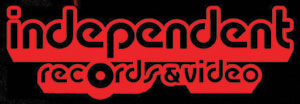The Manager’s Corner-September
by Chris Daniels
I’ve managed my own band for 31 years and I’m in the Colorado Music Hall of Fame. All that’s nice – but today’s music business is changing at light-speed and you have to be more engaged in the ‘biz’ than ever. Some things have not changed, careers are built on some tried and true elements: great music, performance and timing. But today’s artists must work harder than ever to succeed. The good news is that we have new tools to help young musicians grow their fan base. The book I wrote for the course I teach at CU Denver on artist management is called “DIY: You’re Not in it Alone.” While you are ultimately responsible for your own career, these days it’s essential to make the most of all the outlets and good people that you encounter along the way.
So, you get to the gig and you are managing your own band. You are starting to make a little money but not enough to have a sound person with you all the time. And it becomes clear that the sound person at the gig doesn’t give a shit. There are a lot of telltale signs for this. First is the attitude…the “I’ve seen it all” attitude that greets your simple questions with either condescension or contempt. It can get worse and often does. The engineer sets up a bad mix and then leaves the sound booth or they just sit there – missing the solos, burying the vocals and often times completely misunderstanding the music and ruining the sound for the fans. And the worst part of this scenario is that you can often see this train wreck coming. Now, most sound engineers are energetic, kind and committed individuals who love their work. They are as important as any member of your band. But when they suck you are in for a rough night and your fans will let you know how bad it sounded. Here are some tips to lower the odds of having this situation happen to you and your fans.
DIY artists often don’t have a lot of power in these situations. You are literally at the mercy of a sound person’s indifference, their lack of knowledge about the kind of music you play and how your particular act needs to be mixed. But there are things that can mitigate the problem. They boil down to preparation; having a sound-check “designated driver” in the band; and having your fans help in limited ways. Most important of all – “Kill em with kindness.” A lot of talented sound people have a difficult reality – mixing up to 20 bands per week. And it’s pretty easy to get jaded. And they deal with some real asshole musicians too. So if you can adopt that “kill em with kindness” attitude towards sound people, it can help. Here are some additional tips that might help.
Preparation: Hard as it is to believe – I’ve heard from sound people in venues in the US and Europe that young bands don’t have a stage plot and input list. This is the essential basic. You don’t need a fancy graphics program and can literally create the basics in a word program. But it’s best to do it in an application that’s designed for the job. There are free and low cost programs that make this easy. Some examples are: http://www.stageplot.com and http://www.bosstweedbackline.com/stage-designer/.
Additional information: add tips that help the sound person and stage crew do their job. If your drummer plays left-handed the stage crew needs to know ahead of time. If you only need vocals in your monitors you can speed things along by putting that in your stage plot notes. Any specific “style” mix tips you can put in are really helpful. If you have a musical reference – put that in the notes. “We sound like “Tower of Power” so please don’t bury the horn section – they should be out front.” Or something like “our vocals are the most important part of our sound.” And I also always ask the sound person at a multiple band show to “please zero the board” because it is a helpful reminder that the last band’s settings, with the bass guitar blasting through everybody’s wedge, is not going to work for you. It can piss off some sound people when you say it…but it really will help the sound check go faster. Good sound people will appreciate any info they can get about your act – and the “I don’t give a shit” sound person will not have even read it – but you can reference it as you deal with that SOB.
ADVANCE THE SHOW: That means at least a week before the show you should contact the sound person to make sure he/she got your stage plot and if they have any questions. Advancing the show will let you know if there are backline situations that should be solved before you get to the gig, find out when they want your band there plus you make that important contact that helps move you past the “I don’t give a shit” attitude stumbling block.
SIMPLIFY YOUR GEAR! I have watched bands bring a 12-piece double-kick drum set to a show with four bands on the bill where each act gets 30 minutes max for their set with a 10-minute change over. That is insanity. You are not Mick flippin Fleetwood!!!
IN-EAR SYSTEMS. If you are bringing in an in-ear system to interface with the house PA and you have never done it before in that particular room – YOU HAVE TO ADVANCE THE SHOW!! Most good sound people can accommodate this new trend but they need to know ahead of time. They need to explain their system to you. They need to find out what your system is. And the two of you have to figure out how the interface is going to work before you hit the 10-minute change over. Preparation is the key element.
DESIGNATE A DRIVER. Sound check and the eventual show mix are not a committee function. You need to establish a “go-to” person on stage who will run the sound check for the band. That does not mean that each band member will not have a say. It means that the sound person knows who to direct their questions to – so things can move fast. Some sound engineers are really aggressive about the way they run sound check. Some will insist on spending all 10 minutes of the sound check on the drum set…sad but true. And some don’t give a shit and no matter how nicely you ask that you not have screaming lead guitar in your drum-mix – you will have to deal with it all flippin night. But there are rules: (1) simplify your monitor mix requirements. If you can get it so that what you need in your wedge is simple (just my voice) – and it can be written on your stage plot – and you can get that info to the sound person – you’ll have a good night every time you play. Think about it – you are standing on stage with a snare drum that is 110db without a mic. Do you really need that blasting through your wedge too? OK, maybe if you are the bass player – but do you need that if you are the fiddle player? If you have a designated driver – the whole process goes faster because the sound tech knows who to talk to.
CLASSROOM MODE FOR SOUND CHECK (2) These days a lot of sound people use the “classroom mode” for sound check. “Raise your hand if your want snare in your monitor.” That works – but not very well. If you have a sound person with that as their template – try and eliminate the things nobody wants first. The designated driver says, “Hey, I hope this is helpful but none of us need trumpet in our wedge except the trumpet player.” Your designated driver should know enough about sound and mixing to advance the show with the venue or the sound people and to be able to detect a “classroom” model and work with it.
Fans (social media can help): This is tricky and controversial. Sound people, as a general rule, tend to think of the guy (it’s usually a guy) who says, “hey man turn up the fuckin’ lead guitar” – as the enemy. Giving mix suggestions must be done in a way that (a) engages your fans and (b) doesn’t totally piss off every venue you play – it is a very fine line. So here is how you do it. First you ask your fans about their skill and knowledge about live sound engineering. (Note the “live” in that sentence – this is not the lovable nerd in the basement with his Ableton program – this is a question to find qualified folks who know live mixing.) Second, you invite them – get them a free ticket and a beer – whatever – to the show. If you trust them, you need to personally introduce them to the sound person BEFORE the evening starts. There is often a lot of chaos and so you’ll need to find a quiet moment to say something like, “This is our pal Jill and she’s mixed us before. If it is OK with you Mr/Ms sound person can she stop by the booth during our set and let you know how the mix is going for our fans?” Notice the “kill em with kindness” attitude. Most sound people will go, “sure, and hell of you want to mix – come on in once I get the basics going you can mix the band.” DANGER Will Robinson! Now you are in some interesting water. This could be a good thing if Jill knows her shit. But if she is not a pro, it could be bad…so you really want to know Jill and what she is capable of doing. If she actually HAS mixed your band before that is OK. But if not – stick with her making some helpful suggestions and then going away and not bothering the sound person again. She can hang with her friends and drink the beer you bought her.
This is a dance. If your partner doesn’t respect you and worse doesn’t give a shit, there will be a lot of toes that get stepped on. If you have done everything you can to make the sound person’s job easier and you have killed them with kindness, chances are pretty good that you will have a better show for your fans. And that is the point. A real asshole sound person can really screw up a show for the band’s fans. And YOU can screw up the sound for your fans by being an asshole to the sound person. So learn the dance – especially during the days when you don’t have the money for a professional sound person traveling with the band.
Category: Shop Talk


















